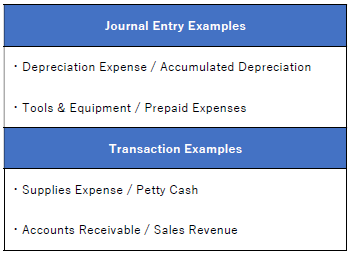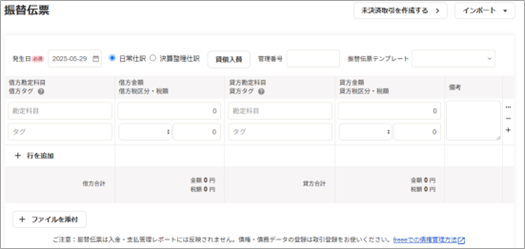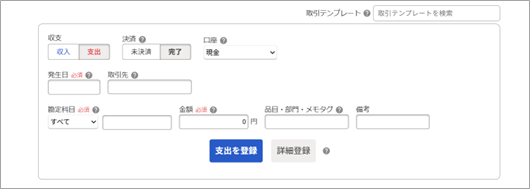Tips for Using freee Accounting: Clearing Unsettled Transactions

Hello from Sayu CPA Office!
When checking clients’ freee accounts or helping with bookkeeping, I often come across situations where accounts receivable that have already been collected, or payables that have already been settled, still show up as if they’re outstanding. In most cases, the cause is simple: the unsettled transactions haven’t been properly cleared.
Unsettled transactions are a somewhat hidden—but very important—feature in freee. They don’t appear in the trial balance, so they’re easy to overlook. But if you’re aiming to master freee, understanding how to manage them is key. In this post, I’ll explain what unsettled transactions are and how to properly clear them.
Understanding Journal Entries vs. Transactions in freee
Before diving into unsettled transactions, there’s one important concept in freee: the difference between journal entries(仕訳) and transactions(取引).
This distinction can be hard to describe in words, but here’s a general idea:
・Journal entries: Simply record the movement of amounts between accounts.
・Transactions: Include not only the journal data but also payment status (such as transaction date, due date, and settlement status).

In practical terms, most accounting entries you’d normally record will fall under the category of “transactions.”
Here’s a quick visual comparison of what journal entry and transaction input screens look like in freee:
・Journal Entry Screen (Journal Voucher Format)

・Transaction Entry Screen (Income/Expense Format)

What Are Unsettled Transactions(未決済取引)?
Since transactions in freee include payment status, some are already settled at the time of entry, while others will be settled later. The ones that haven’t yet been paid or collected are called unsettled transactions(未決済取引).
Unsettled transactions can be created manually, but also appear automatically when:
・A sale is registered via freee Invoicing
・Payroll or social insurance is synced from freee HR
・An expense report is processed in freee Expense
For example, unpaid receivables, unpaid wages, and unpaid social insurance premiums are all automatically recorded as unsettled transactions.
When entries are registered as transactions, freee will automatically track their payment status. You can manage these through features like the Payment Collection Report and Disbursement Report, which give you a quick overview of outstanding payments—helping prevent delays or missed settlements.
How to Clear Unsettled Transactions
Unsettled transactions are useful, but they don’t go away unless you explicitly mark them as settled. As mentioned earlier, if you’re unaware that an entry was automatically created as an unsettled transaction and then record the payment only as a journal entry, that payment won’t be linked. As a result, the transaction remains “unsettled”—even though the money has already been collected or paid.
This often happens when people use journal entry methods like the “Journal Voucher” screen to record payments. These entries appear in the trial balance and ledger, but don’t update the transaction status—so unsettled items stay visible.
To clear unsettled transactions correctly, make use of features like “Import Unsettled Transactions(未決済取引の取込)” in Automatic Bookkeeping and the “Settle Payment(決済)” function in the Transaction Entry screen.
Using these methods ensures that the payment is linked to the correct transaction and marked as settled within freee.
Final Thoughts
In this article, I focused on just one feature of freee. Even among regular users, it’s common to see unsettled transactions left uncleared. Not only does it make your records feel cluttered, but it also means you’re missing out on one of freee’s most helpful features.
If you’re looking to take your use of freee to the next level, I recommend paying attention to this area. A bit of extra awareness can go a long way in keeping your records clean and accurate.
At Sayu CPA Office, we provide support not only for introducing cloud accounting software like freee, but also for optimizing daily operations. Feel free to reach out if you’d like help making the most of your accounting tools!
Comment
No trackbacks yet.

-200x200.jpg)

No comments yet.